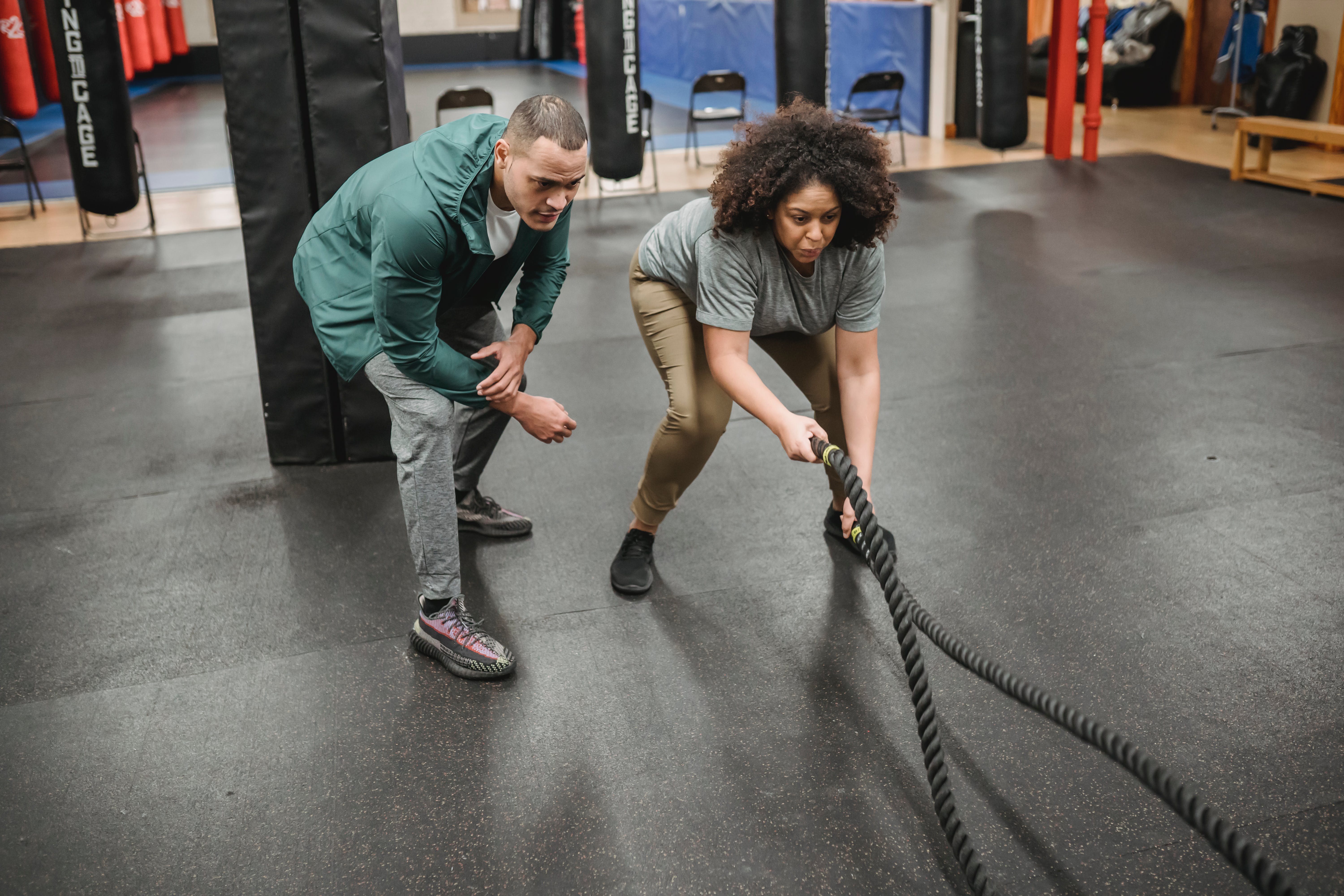Exercise for Recovery in Los Angeles
In the challenging and transformative journey of addiction recovery, the significance of holistic approaches cannot be overstated. Beyond traditional therapeutic methods, integrating exercise into recovery plans has emerged as a powerful tool for individuals seeking to reclaim their lives. In this exploration of "Exercise for Recovery," we delve into the concept of exercise therapy and its pivotal role in fostering physical, mental, and emotional well-being throughout the recovery process.
The Role of Physical Activity in Supporting Recovery
Addiction recovery is a multifaceted endeavor that extends beyond mere abstinence from substances. The mind-body connection plays a crucial role in the healing process, and this is where exercise therapy becomes a valuable asset. Physical activity is not just about strengthening the body; it's a means to fortify the mind and uplift the spirit. As individuals embark on the path to recovery, engaging in purposeful exercise becomes a dynamic catalyst for positive change.
Embracing a Holistic Approach: Mind, Body, and Emotions
Exercise for recovery in Los Angeles operates on the principle that healing is not confined to the physical realm alone. By adopting a holistic approach, exercise therapy addresses the interconnected facets of well-being—physical, mental, and emotional. The act of moving one's body becomes a conduit for releasing pent-up tension, alleviating stress, and cultivating a positive mindset essential for sustained recovery.
In this holistic paradigm, the benefits of exercise extend far beyond the visible physical changes. The rhythmic cadence of movement becomes a metaphorical heartbeat—a steady pulse guiding individuals through the peaks and valleys of recovery. By embracing the mind-body-emotion connection, exercise therapy unfolds as a comprehensive strategy to fortify resilience and empower individuals on their transformative journey.
Before You Start: Considerations for Exercise in Recovery
Embarking on an exercise regimen during addiction recovery is a commendable decision, yet, like any significant lifestyle change, it requires careful consideration and guidance. Here, we underscore crucial considerations to ensure that the integration of exercise into your recovery journey is a positive and supportive endeavor.
Addressing Considerations Specific to Addiction Recovery
Recovery from addiction is a unique and individualized process, and introducing exercise should align with your personal circumstances and health status. Before incorporating any exercise program, it's imperative to address considerations specific to addiction recovery. Factors such as the stage of recovery, existing health conditions, and any physical limitations must be considered. Recognizing these elements lays the foundation for a tailored and effective exercise plan.
Consultation with Healthcare and Addiction Professionals in Los Angeles
Before lacing up your sneakers or rolling out a yoga mat, a crucial step in the process is consulting healthcare and addiction professionals. These individuals play a pivotal role in providing personalized guidance based on your health history and the specific challenges associated with addiction recovery. Healthcare professionals can offer insights into how exercise may impact your recovery journey and recommend activities that align with your unique needs.
Their expertise ensures that the chosen exercise plan complements rather than conflicts with your overall recovery strategy. Open communication with healthcare and addiction professionals is key, fostering a collaborative approach that prioritizes your well-being throughout the process.
Integrating Exercise into a Comprehensive Recovery Plan
Recovery from addiction flourishes in an environment that nurtures the whole person—physically, mentally, and emotionally. To maximize the benefits of exercise in recovery, it should seamlessly integrate into a comprehensive recovery plan. The holistic nature of recovery recognizes that each aspect of well-being is interconnected, and exercise becomes a dynamic thread weaving through this intricate tapestry.
Emphasizing the integration of exercise into a comprehensive recovery plan ensures that it aligns with your goals and complements other therapeutic interventions. Whether it's counseling, support group participation, or other recovery modalities, exercise becomes a supportive ally, enhancing the effectiveness of the entire recovery process.
10 Exercise Therapy Activities for Addiction Recovery in Los Angeles
Embarking on the journey of addiction recovery is a profound commitment to self-healing, and integrating exercise therapy can be a transformative component of this process. Here, we explore 10 exercise therapy activities tailored for addiction recovery, each designed to nurture physical, mental, and emotional well-being.
1. Walking or Jogging
Walking or jogging serves as a foundational and accessible exercise for individuals in recovery. The benefits extend beyond physical fitness, encompassing mental clarity and stress reduction. Taking short, manageable walks initiates the journey, gradually increasing intensity as physical and mental stamina grows. In the rhythmic cadence of each step, individuals find a powerful ally for promoting mental wellness.

2. Yoga and Mindful Movement
Yoga and mindful movement offer a holistic approach to recovery by seamlessly blending physical activity with stress reduction and mindfulness. Simple yoga poses and movements, accessible to beginners, become a means of cultivating self-awareness and finding a centered, tranquil space within. This mindful integration of body and breath becomes a source of serenity on the road to recovery.
.jpg)
3. Strength Training
Strength training becomes a cornerstone in building not only physical resilience but also mental fortitude during recovery. Incorporating resistance exercises into a recovery-focused fitness routine fosters a sense of empowerment. As individuals witness their physical strength grow, a parallel strengthening of mental resolve occurs, contributing to a more robust recovery journey.

4. Group Fitness Classes
Group fitness classes provide a dual benefit by promoting physical well-being and offering a platform for social connection and support. Tailored for individuals in recovery, these classes foster a sense of community—a vital component in the recovery journey. Whether it's a dance class or a supportive fitness group, the collective energy becomes a driving force for positive change.
5. Swimming or Water Aerobics
Immersing oneself in water-based exercises provides a therapeutic dimension to addiction recovery. Gentle on the joints, swimming or water aerobics becomes a medium for physical rejuvenation and emotional release. The fluid movements of water symbolize the fluidity of one's transformative journey, fostering a holistic approach to recovery.

6. Cycling
Cycling emerges as a stress-relieving and liberating exercise, offering a sense of freedom and autonomy. The rhythmic pedaling becomes a metaphor for progress, and the act of cycling integrates seamlessly into the daily routine, contributing to both physical and mental well-being in the recovery process.
.jpg)
7. Mindfulness Meditation
Mindfulness meditation becomes a powerful tool for managing cravings and promoting emotional stability in addiction recovery. Through simple mindfulness exercises, individuals learn to observe thoughts without judgment, fostering a heightened sense of self-awareness. This practice becomes a refuge for individuals navigating the complexities of recovery.
.jpg)
8. Dance Therapy
Dance therapy transcends the physical realm, providing an expressive and cathartic outlet for individuals in recovery. Encouraging engagement in dance as a form of self-expression and joy, this activity becomes a celebration of the body's newfound freedom and a channel for emotional release.

9. Outdoor Activities
Nature becomes a therapeutic backdrop for recovery, and outdoor activities such as hiking, nature walks, or outdoor workouts offer a holistic connection to the environment. The outdoors provide a serene space for self-reflection and renewal, supporting individuals on their recovery journey.

10. Aerobic Exercise
Aerobic exercise, known for its mood-enhancing benefits, becomes a key component in promoting overall well-being during recovery. Engaging in aerobic activities aligned with personal preferences—whether it's dancing, brisk walking, or cycling—contributes to a positive emotional state and reinforces the commitment to a healthier lifestyle.

Conclusion
Embracing Exercise for Recovery in Los Angeles
In the realm of addiction recovery, the incorporation of exercise therapy stands as a beacon of hope and a catalyst for holistic healing. As we conclude this exploration of "Exercise for Recovery in Los Angeles," let us reflect on the profound significance of physical activity in the transformative journey toward well-being.
Summarizing the Significance of Exercise Therapy in Addiction Recovery
Exercise therapy emerges not merely as a supplement to traditional recovery methods but as an integral component, addressing the physical, mental, and emotional facets of the recovery journey. The benefits are multi-faceted, ranging from promoting mental clarity and stress reduction to fostering physical resilience and emotional stability. Exercise becomes a dynamic ally, contributing to a comprehensive approach that transcends the boundaries of traditional recovery strategies.
Reiterating the Importance of Individualized Plans and Professional Guidance
Crucial to the success of exercise in recovery is the recognition that each individual's journey is unique. There is no one-size-fits-all solution. As we advocate for the positive impact of exercise therapy, we stress the utmost importance of individualized plans. Seeking guidance from healthcare professionals and addiction experts ensures that exercise is seamlessly integrated into a recovery plan that aligns with personal goals, health considerations, and the stage of the recovery journey.
Healthcare professionals bring a wealth of knowledge, offering personalized insights that cater to the specific needs of individuals in recovery. Their expertise guides the creation of exercise plans that complement other therapeutic interventions, fostering a cohesive strategy for sustained well-being.
Encouraging Exploration and Joy in the Recovery Journey
In the spirit of empowerment, we extend an encouraging invitation to all individuals on their recovery journey: explore the vast spectrum of exercise options and discover activities that bring not just physical vitality but genuine joy. The transformative power of exercise lies not only in its physical benefits, but also in the emotional resonance it imparts.
As you navigate the landscape of exercise for recovery, let joy be your compass. Whether it's the rhythmic steps of a walk, the meditative flow of yoga, or the liberating pedal strokes of cycling, find activities that resonate with your spirit. The joy derived from these activities becomes a sustaining force, motivating continued engagement in the recovery process.
In closing, exercise for recovery is not a mere prescription; it is an invitation to embrace a lifestyle that nurtures your entire being. Let the rhythm of your chosen activities harmonize with the beats of your recovery journey, and may each step, stretch, or breath become a testament to the resilience within you.
Contact Us and break free from addiction: Your journey to recovery!







